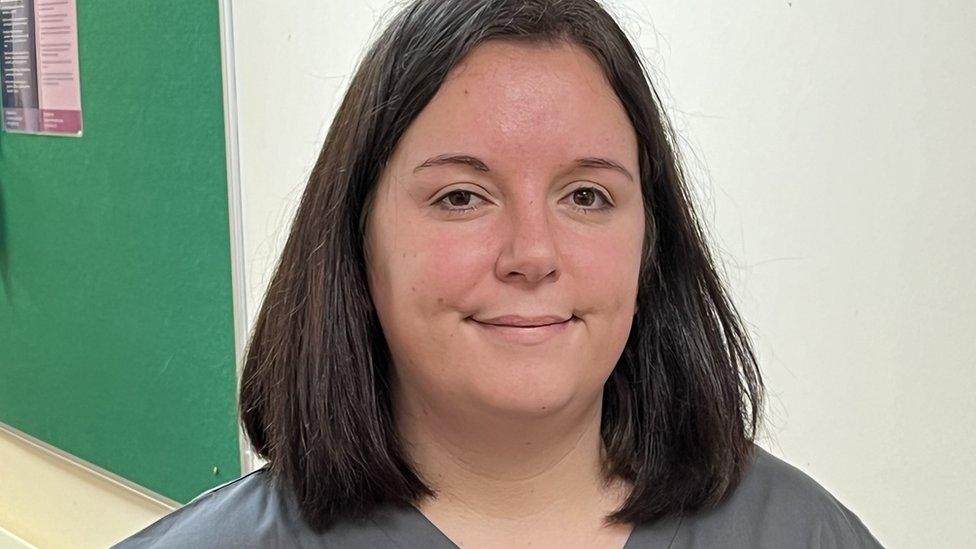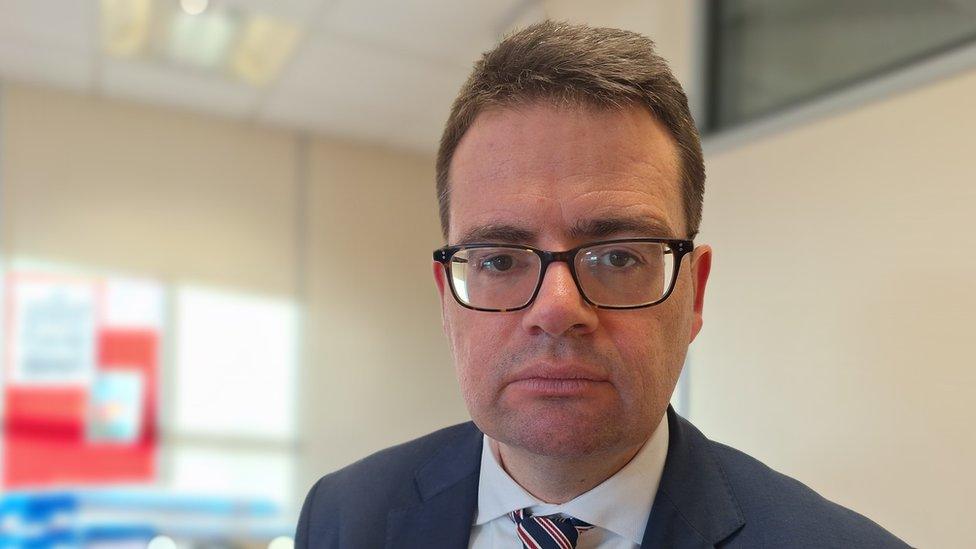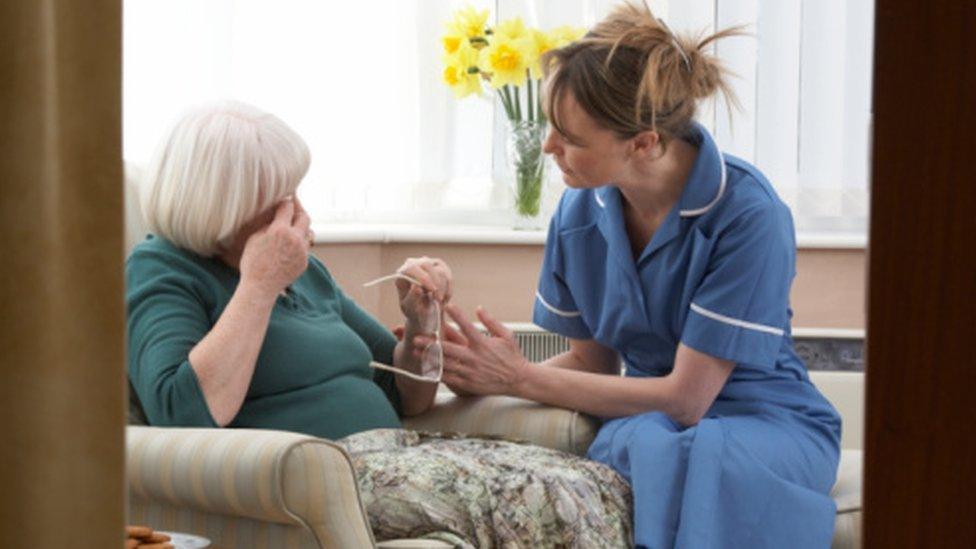Wales social services face cuts over £646m budget gap
- Published
- comments

Chloe Selby became a carer during the pandemic
Social services in Wales have forecast a budget gap of £646m over the next three years.
Councils, which provide support and care to communities, have warned that cuts will have to be made unless they receive extra funding.
The Welsh government said it faced an incredibly tough financial situation.
The Welsh Local Government Association (WLGA) said councils were facing record levels of demand in both children's and adult services.
That has led to a £108.7m overspend this year.
The WLGA and the Association of Directors of Social Services have predicted their funding gaps in social services if services stay the same for the next three years.

Huw David says it is important to protect the most vulnerable people
Huw David, WLGA's spokesperson for health and social care, said departments received more than 1,000 calls a day from people concerned about children at risk of abuse or neglect as well as families that struggle to support elderly relatives or relatives with learning disabilities.
"We have to act and protect our most vulnerable people," he said.
The WLGA and the Association of Directors of Social Services have predicted they will need an extra £646m over the next three years.
The Welsh government has not published any spending plans beyond the end of the financial year 2024-25.
Mr David suggested it was time to review the cap that limits the amount people pay for home care. At present, the maximum cost of home care is £100 a week. In England there is no cap.
"While that cap supports people on middle incomes, there are very wealthy people who are not paying the full cost of their care. There needs to be a sharing of that burden," Mr David said.
"I think we can still have a cap that supports thousands of people across Wales but a cap that reflects that the costs have risen significantly."
He added that budgets had risen far more for the NHS than for councils.
Mike Williams, home care service manager for Cartrefi Cymru in Bangor, said he agreed more money was needed to recruit and retain care staff.

Mike Williams says more money is needed to recruit and retain carers
"The sooner they sort wages out, the easier it will get for home carers. It's a lot of responsibility," he said.
"Hospitals are full, care homes are full and we're trying to relieve them but if we haven't got the staff, we can't commit."
He said Cartrefi Cymru, like most care organisations, was always recruiting as there was constant demand from the council.
"I'm not blaming the council or the hospitals - it's an ageing population, people are getting older, people want to live longer at home and that's where we come in," he said.
Chloe Selby gave up her job as a butcher to become a carer during the pandemic and said it was the best job she had ever had.
She started as a support worker and was promoted to a service manager in the summer.
She said while it was a really rewarding job, staff at Cartrefi Cymru did more than "just care".
"We support with a lot of things like medication. Some people don't have families so we become families to them," she said.
"All my staff are very caring. We see [clients] when they're sad, when they're happy, when they've had good news or bad news. Emotionally, it affects carers… Even when you go home, it's hard to switch off and think, 'that's tomorrow's problem'," she added.
The Welsh government said it was facing an incredibly tough financial situation and it had taken "really difficult decisions" to radically redesign its budget for next year.
A spokesperson said: "We're protecting the core local government settlement - which funds social services and social care - providing the 3.1% increase to local authorities, as we promised last year.
"We are also carefully examining whether charges for some services, including domiciliary care, need to be raised in light of the current situation."

MEN UP: Five ordinary Welshmen embark on a surprising medical trial
UNMISSABLE DRAMA: When the Wolf is at the door, be very afraid

- Published9 October 2023

- Published6 October 2022
